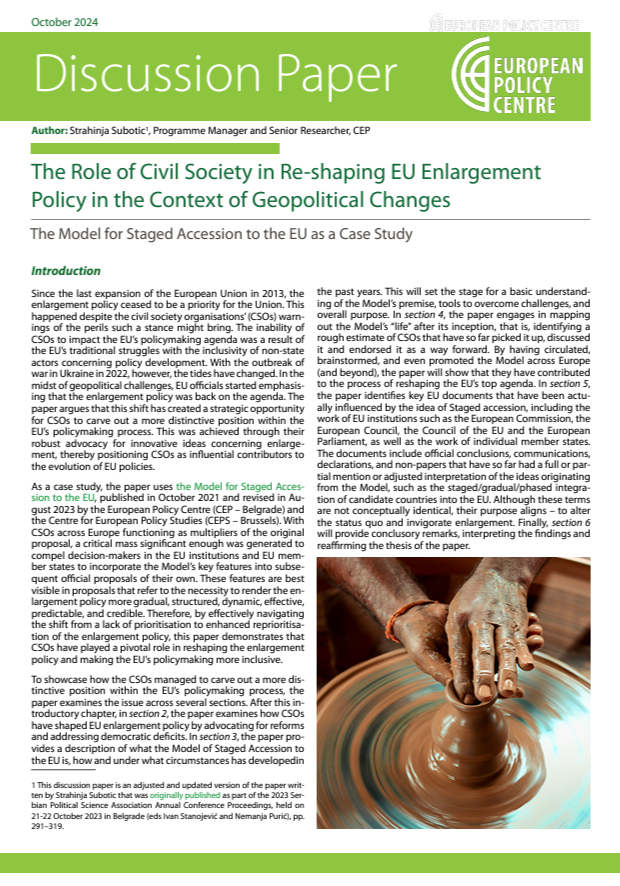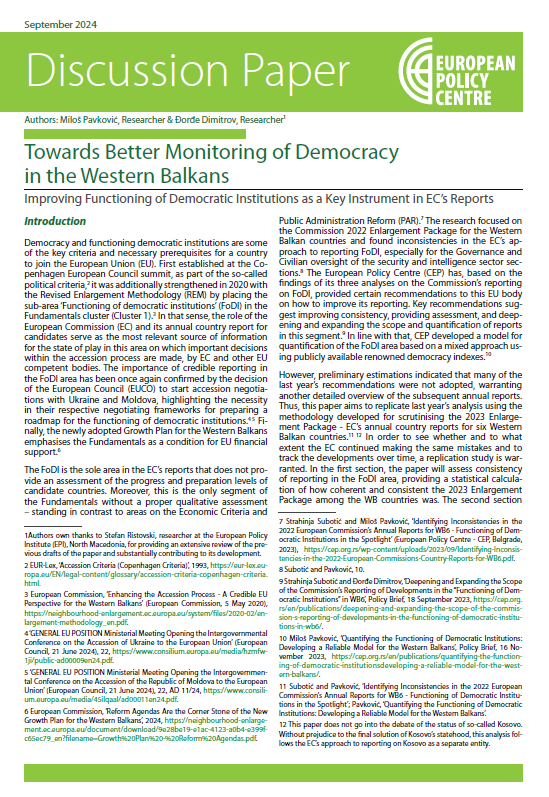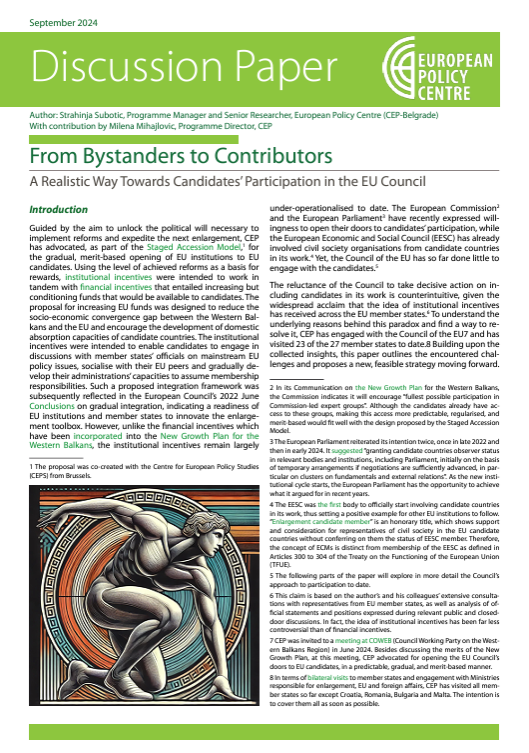Headquarters: Svetog Nauma 7, 11000
Office address: Đorđa Vajferta 13, 11000
Phone:: +381 11 4529 323
The paper explores the potential for institutional participation of candidate countries in EU bodies during the pre-accession period, aiming to create a more gradual and merit-based approach to enlargement in line with the Staged accession model. The premise is that opening the doors would contribute to the effectiveness of the accession process by incentivising reforms and facilitating early socialisation.
Accordingly, the paper explores the operating procedures of EU institutions, including the Council of the EU, European Council, European Parliament, Comitology, European Commission’s Expert Groups, and EU consultative bodies and agencies. The paper draws a conclusion that the EU can facilitate greater institutional access for candidate countries without treaty changes, provided there is political will from EU institutions and member states. In doing so, however, the “principle of autonomy in decision-making” must be upheld, as the Council’s Legal Service has repeatedly reaffirmed that this principle is fundamental to fulfilling policy-making and decision-making responsibilities. To enable candidate countries’ presence in meetings while preserving autonomy, temporary removal of professional secrecy obligations would be necessary, with invitees leaving the room once the subject has been discussed.
Moreover, prior presence on a particular subject does not create a right to be invited on that subject in the future, thus reaffirming the possibility of reversing the acquired institutional benefits in case the necessary accession reforms are missing. This logic particularly applies to the Council of the EU, European Council, European Parliament, and Comitology, whereas a more flexible approach would apply to European Commission’s Expert Groups, EU consultative bodies and EU agencies, as they have been more welcoming to third-state participation thus far. Meanwhile, to capitalise on the expected benefits, any attempt to introduce a regime of graduation through stages of institutional participation would need to be based on preparedness for membership in a fully merit-based process, following the principle “more-for-more, less-for-less”.
This approach could also be applicable to other candidate countries, such as Ukraine, Moldova, and potentially Georgia. By leveraging past experiences and lessons learned, the EU can effectively navigate the candidates’ path to membership, ensuring that the enlargement policy remains a transformative tool for change at times of changing geopolitical realities.


